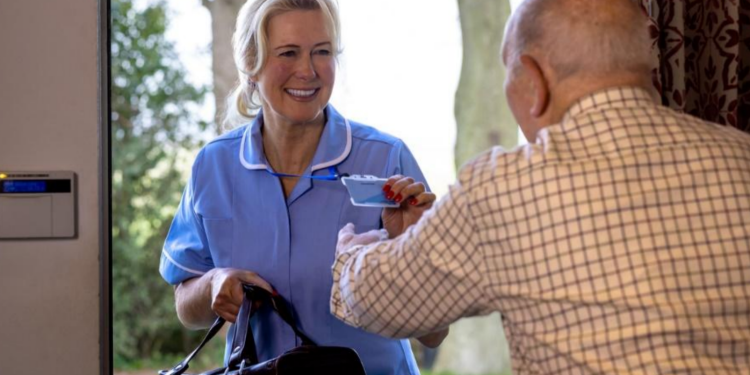It’s safe to say we all rely, or will one day, on medical professionals. Among them, nurses are some of the most tireless people we depend upon for round-the-clock care. However, not just anyone can become a nurse. It takes not only years of training but also a strong set of core skills to succeed in the long term.
If you’re considering a career in nursing, here are a few of the key attributes you’ll need to refine if you want to go far.
Communication
Much of your career in nursing will revolve around treating patients so if you can’t communicate effectively, you’re likely going to struggle.
Nurses receive and interpret complex instructions and apply them via patient healthcare in many different ways. What’s more, clearly and calmly informing patients of medical procedures and expectations is vital to the role. This is known as a bedside manner, and alongside knowing the right things to say, tone and delivery are everything.
Nurses also need to talk freely and frequently with their supervisors and other medical staff as well as with patients’ families. For example, they may need to deliver difficult news if patients aren’t responding to specific treatments.
While the job outlook for nurses is particularly healthy in areas such as Texas right now, you will need a robust communicative core to be able to do your job professionally. Baylor University’s online courses can help you to develop the skills to find employment in the area upon graduating.
Clinical knowledge
Much of what nurses learn during their education revolves around clinical and medical knowledge. All nurses will need to demonstrate that they can monitor and treat specific needs and conditions regardless of a patient’s individual demands.
For example, nurses should know how to check heart rate monitors, administer liquids if needed, and how to adjust medicine intake. Nurses should also be confident cleaning and dressing wounds as well as reaching out for help from other staff if required at short notice.
Critical thinking
In nursing, clinical knowledge is very little if it’s not backed up with critical thinking and crisis management skills. All nurses should feel confident thinking on their feet. This means they must be able to find solutions and make decisions that could affect patients’ lives quickly.
Unfortunately, in the thick of the action, nurses aren’t always going to have supervisors or other specialists around them to give advice. Therefore, qualified nurses should always be ready to make decisions on their own if push comes to shove.
Nurses not only need to address how patients are feeling and their symptoms but should also feel confident about reading and analyzing charts and reports. This skill develops over time and will, naturally, build with experience on the job. However, nurses learning at reputable schools and universities will have the opportunity to build such skills in test scenarios.
Emotional intelligence
Empathy is a virtue in nursing, particularly as nurses handle life-or-death scenarios every single day. As a nurse, you must demonstrate a legitimate desire to care for others. Emotional intelligence also covers showing compassion toward patients’ families and listening carefully to their needs.
Building emotional intelligence also means you know how to balance knowing what to say and how to say it. There will be many circumstances where, unfortunately, you won’t be able to help patients as much as you’d wish. Therefore, nurses must always show an understanding and an appreciation of patient and family needs, while working within the boundaries set for them.
Emotional resilience
Nursing is not a role where you’ll be able to feel too deeply about each and every case you take on. Emotional intelligence is a core skill, but getting too close to patients can harm your mental health and affect your performance on the job.
All nurses must understand that, in some cases, they won’t be able to save their patients. They need to appreciate that doing their best with the tools and resources at their disposal is all anyone can expect from them.
Getting too emotionally connected to cases will slow down treatment and may even harm nurse-patient relationships.
Organizational skills
While nurses will receive rotas and have access to beepers, so they know where to go and when from one moment to the next, self-organization is vital in this role.
Nurses must always keep a close eye on their schedules and workloads and be flexible. This is a role where you may need to drop everything to attend to an urgent case in a department two wards over. What’s more, it’s a decision you may not have the luxury to ponder over before answering such a call.
The best nurses are those who are self-starting and self-motivated without needing constant supervision or guidance from others. Again, these are skills that can be learned while attending college or university; however, entering education with a resilient mindset will be a huge bonus.
Conclusion
Nursing is a challenging profession that’s among some of the most rewarding in modern society. There’s little more rewarding than knowing you’ve helped to save lives. However, this fast-paced profession also demands resilience and specific aptitudes. If you can separate your emotions from your job while still showing empathy and kindness, you are already a great fit for a medical role.
Advances in technology can help nurses learn quicker and develop new skills easier while at college. That said, much of the mindset and organizational skills required are down to the individual learner.
There are more skills than those mentioned that will help you go far in the nursing profession. However, simply showing aptitude for any of the above is a fantastic start.









